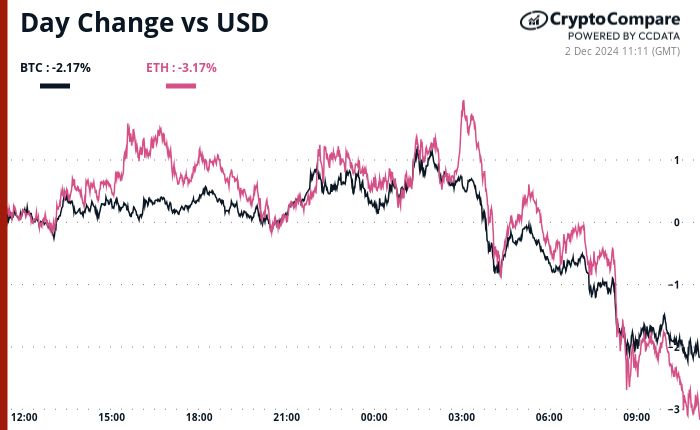Most crypto investors have probably never heard of Wintermute Trading before the Sept. 20 $160 million hack, but that does not reduce their significance within the cryptocurrency ecosystem. The London-based algorithmic trading and crypto lending firm also provides liquidity to some of the largest exchanges and blockchain projects.
As a crypto-native trading firm, meaning digital assets have been the core since its inception in July 2017, Wintermute’s expertise in the sector is attested by $25 million in funding from global venture capital investors like Fidelity Investments, Pantera Capital and Blockchain.com Ventures.
Lending and venture capital firms have limited impact on day-to-day operations
An important distinction sets apart a market maker from the bankrupt crypto venture capital firms like 3 Arrows Capital or insolvent lending and yield platforms like Voyager Digital and Celsius Network. Wintermute’s $160 million hack could have a much more profound impact on the crypto industry, considering how essential liquidity is.
The very nature of these businesses is vastly different. For example, a venture capitalist typically invests in pre-seed or seed capital by funding the projects ahead of its launch. There is definitely a need for early-stage funding for tokens, NFT projects, a decentralized application (DApps) and infrastructure, but the money will eventually come up when a good team, idea and community is assembled.
Furthermore, the failure of a certain venture capitalist, whether it is or is not relevant to the industry, does not damage its competitors’ reputation. In fact, the opposite sentiment emerges because it proves that picking the right projects pays off, if the firm has been correctly managing its risk exposure. The same can be said for the yield and lending platforms, which basically compete for client deposits and scramble to offer the best returns.
When market markers fail, liquidity dries up and there is nothing worse for tradable assets than spreads growing wider. Most DApps users and exchanges aren’t even aware of these intermediaries because their work is hidden within the order books and price arbitrage across intermediaries whether they are centralized or not. The real secret lies in algorithmic trading.
By applying sophisticated modeling and trading software, algorithmic firms like Wintermute resort to diverse strategies to find a competitive advantage over regular traders, including arbitrage, derivatives and colocation servers for high-frequency market access.
In addition to traditional proprietary desk trading, Wintermute provides market-making services by facilitating transactions on intermediaries using their own resources. These services can be hired by exchanges, brokers, token issuers or third-party entities such as foundations and supporting companies.
Specialized trading firms usually handle this process, but the activity can also be carried out independently. Currently, Wintermute, Alameda Research, DRW, Jump…
Read More: cointelegraph.com









 Bitcoin
Bitcoin  Ethereum
Ethereum  XRP
XRP  Tether
Tether  Solana
Solana  Dogecoin
Dogecoin  Cardano
Cardano  USDC
USDC  Lido Staked Ether
Lido Staked Ether  Avalanche
Avalanche  TRON
TRON  Shiba Inu
Shiba Inu  Toncoin
Toncoin  Stellar
Stellar  Wrapped stETH
Wrapped stETH  Chainlink
Chainlink  Polkadot
Polkadot  Wrapped Bitcoin
Wrapped Bitcoin  Hedera
Hedera  WETH
WETH  Bitcoin Cash
Bitcoin Cash  Litecoin
Litecoin  Sui
Sui  Pepe
Pepe  Uniswap
Uniswap  NEAR Protocol
NEAR Protocol  LEO Token
LEO Token  Wrapped eETH
Wrapped eETH  Aptos
Aptos  Internet Computer
Internet Computer  USDS
USDS  POL (ex-MATIC)
POL (ex-MATIC)  Cronos
Cronos  Ethereum Classic
Ethereum Classic  Artificial Superintelligence Alliance
Artificial Superintelligence Alliance  Ethena USDe
Ethena USDe  Algorand
Algorand  Filecoin
Filecoin  Bittensor
Bittensor  Render
Render  Arbitrum
Arbitrum  Cosmos Hub
Cosmos Hub  Dai
Dai  Aave
Aave  Stacks
Stacks  WhiteBIT Coin
WhiteBIT Coin  Immutable
Immutable